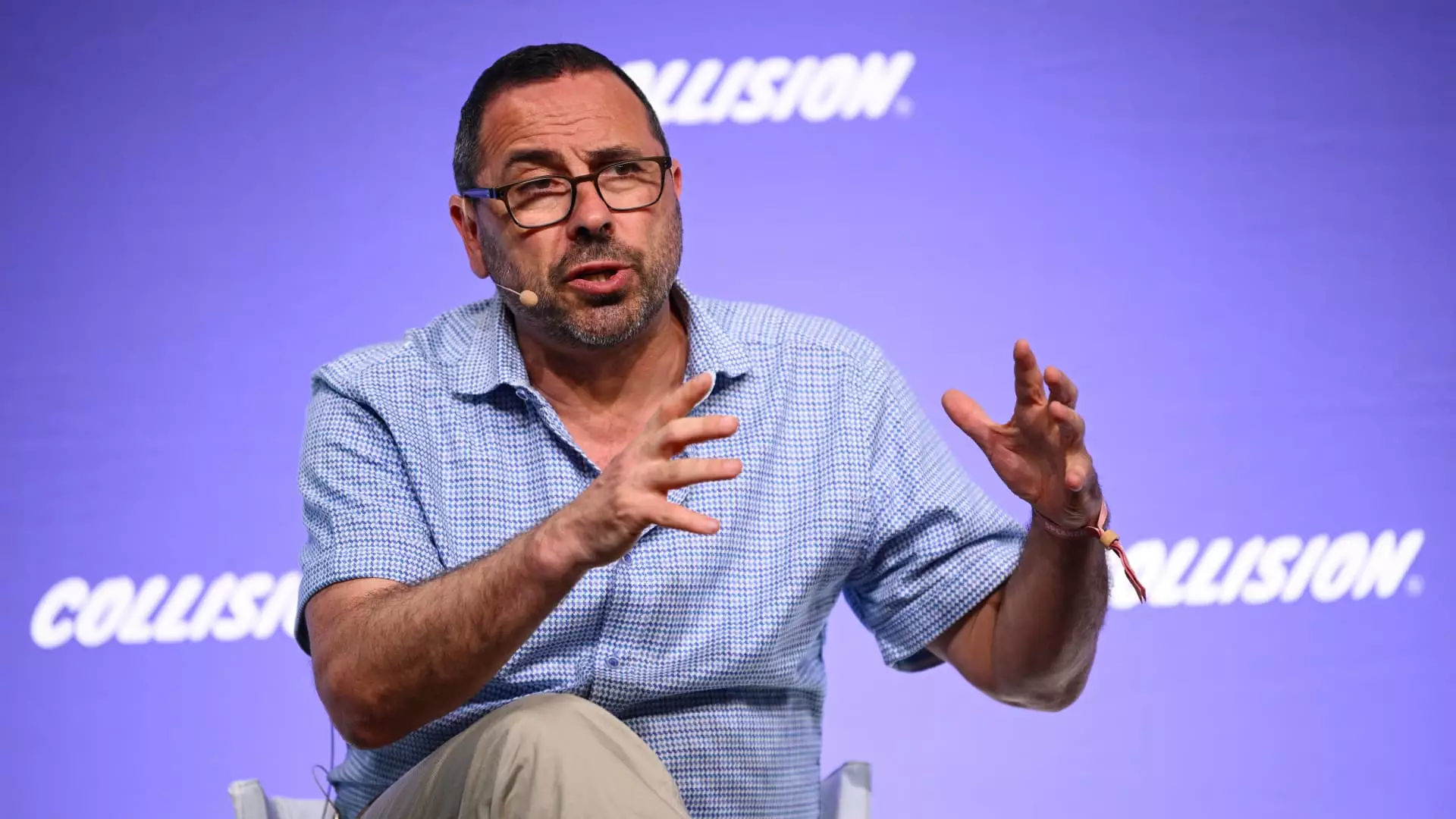Artificial intelligence chip startup Cerebras Systems has taken a significant step towards public trading by filing its initial public offering (IPO) prospectus. With the intention of being listed under the ticker symbol “CBRS” on the Nasdaq, Cerebras is preparing to enter a highly competitive market dominated by industry giants. The burgeoning field of AI technology has spurred demand for specialized chips that can effectively train and run sophisticated AI models, and Cerebras aims to carve out a niche for itself in this crowded landscape.
Cerebras is not just another chip manufacturer; it has positioned itself against renowned competitors, most notably Nvidia, whose graphics processing units (GPUs) are widely regarded as the preferred choice for AI applications. Cerebras claims that its WSE-3 chip not only competes in terms of performance but also surpasses Nvidia’s popular H100 by offering more cores and memory. This physical and technical superiority could provide an edge in an industry that relies heavily on computational power.
However, as Cerebras strives to make its mark, it faces substantial financial headwinds. The company’s recent filings reveal a net loss of $66.6 million in the first half of 2024, despite achieving sales of $136.4 million. Comparatively, the previous year was even more challenging, with the first half of 2023 revealing a net loss of $77.8 million and a mere $8.7 million in sales. For its complete fiscal year in 2023, Cerebras reported a staggering net loss of $127.2 million against a revenue figure of $78.7 million. Such financial metrics raise important questions about the sustainability of its business model and whether it can weather the competitive storms ahead.
In the second quarter of 2024, the company continued to report losses, posting $50.9 million on $69.8 million in revenue—marking a decline from the previous year’s figures. This increase in operating expenses can be attributed partly to rising personnel costs, which the company argues are necessary to support anticipated revenue growth. Nonetheless, this trend might signal deeper structural issues that need to be addressed to secure investor confidence.
Cerebras is entering an AI chip market that is not only growing but also becoming increasingly competitive. Major cloud providers like Amazon, Google, and Microsoft have developed their own proprietary AI chips, creating an ecosystem where companies need to continuously innovate to remain relevant. Additionally, Cerebras reported that Group 42, a prominent UAE-based AI firm with Microsoft as an investor, accounted for a staggering 83% of its revenue last year. This dependency on a single client could pose a risk if Group 42’s investment commitment falters.
Cerebras acknowledges a wide range of competitors, including not just Nvidia but also AMD, Intel, Microsoft, and Google, along with custom chips developed internally by tech companies and various startups. This broad spectrum of competitors underscores the fierce nature of the landscape in which Cerebras is attempting to compete and thrive.
Founded in 2016 and headquartered in Sunnyvale, California, Cerebras has garnered attention in the tech sector—especially after a funding round in 2021 valued the company at over $4 billion. Major investments from firms like Foundation Capital, Benchmark, and Eclipse Ventures highlight the confidence in Cerebras’s long-term potential despite its current financial struggles.
Adding to its prospects, in May, Group 42 committed to a considerable purchase, promising to order $1.43 billion worth of products from Cerebras by March 2025. This deal may offer some much-needed financial stability, but the relationship also poses a unique challenge and reliance on a single buyer for a significant portion of its revenue.
As the company prepares for its IPO amidst a generally sparse tech market in 2024, external economic factors, including interest rate fluctuations and overall market sentiment, will play crucial roles in determining its success on the public stage. With many eyes on the tech-heavy Nasdaq Composite index, Cerebras’s future will depend significantly on its ability to sustain growth while managing costs effectively.
Thus, as Cerebras Systems embarks on this promising yet perilous journey, it remains to be seen whether it can capitalize on its technological strengths, diversify its client base, and achieve greater financial stability as it strives to compete in a highly challenging environment.


Leave a Reply